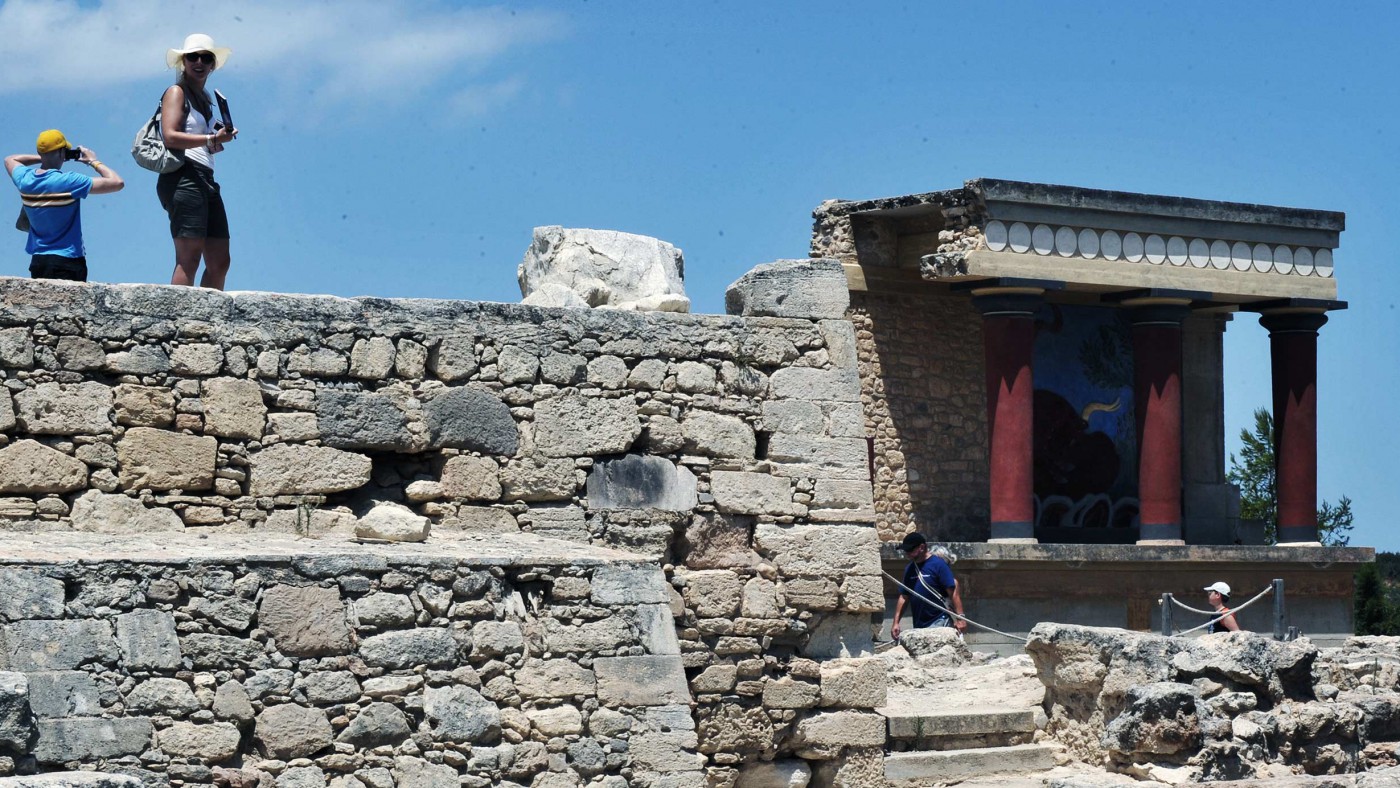Harry Mount is the master of, so to speak, the QI book. Like the authors of the BBC show, he is able to hold our interest in the unlikeliest subjects by telling us things that come as a surprise, even when think ourselves well-read. An eager truffle-hunter, he has snuffled his way in previous books across the fields of architecture, Latin grammar and English topography, managing to excavate little treasures from each. Now he has turned to Ancient Greece.
Harry Mount’s Odyssey, though, turns out to be far more than a collation of things that you didn’t know came from Homer. Perhaps without intending it, he has written himself into the story as a kind of Homeric anti-hero: desiccated, bald, pedantic, “a dried-up husk of a person”.
Odysseus began his journey to Ithaca with the towers of Ilium falling around him in flames. Harry, with deliberate bathos, begins his at the Pret-a-Manger in Heathrow’s Terminal 5, heartbroken after splitting up with his girlfriend. It was she who had originally suggested that he follow Odysseus’s epic route, as near as it can be inferred, around the Mediterranean. The book is rather sweetly dedicated “To S., the face that launched a single ship”.
It’s a fascinating ship to hitch a ride on. In between telling us about Athenian democracy, classical philosophy and the euro-inflicted ruin of modern Greece, Harry visits the place where his great-grandfather, the fifth Earl of Longford, fell at Gallipoli (“Please don’t duck, Fred,” were the literary peer’s final words, addressed to his second-in-command. “It won’t help you, and it’s no good for the men’s morale”).
He attempts to swim the Hellespont in mimicry of Byron, who recorded his achievement in some truly execrable lines about Don Juan:
A better swimmer you could scarce ever see,
He could, perhaps, have pass’d the Hellespont
As once (a feat on which ourselves we prided)
Leander, Mr Ekenhead and I did.
But Harry didn’t. In keeping with the theme of his book, he had to be hoicked ignominiously out of the water, exhausted. It’s a refreshing approach to travel writing. Instead of copying the great men who inspired your journey, you use yourself as a symbol of our unheroic age. At one point, Harry is woken up by the thudding music of a Mykonos nightclub, and reads grumpily until 6 am. Odysseus, he reflects – or even one of his dimmer but happier school contemporaries – would have made a virtue of the music, joined the dance and maybe picked up one of the few heterosexual girls in the club. But Harry, the lifelong swot, lies in bed with his Loeb translation, brooding on his limitations.
Despite, or perhaps because of, this self-mockery, the book comes to take on an elegiac quality. The author isn’t just mourning his unhappy love-life; he is mourning the passing of a whole mode of thought, one that used to be assumed automatically by educated Britons. Harry Mount – and I, come to that – are of the last generation to have been marinaded in the classics. I don’t mean we’re the last generation to have studied Latin and Greek; but we’re the last to be able to take it for granted that our contemporaries did, too. Classical allusions and quotations were once as common a reference point in English writing as, say, Shakespeare. Not any more. Harry Mount’s Odyssey is a threnody for this passing culture, a funerary song from one of the last bards to have been raised in that old tradition.
It’s something else, too. While I was writing this review, my 13-year-old daughter leafed idly through a couple of pages. “This is like a bio from a dating site, Daddy.” What do you mean, darling? “Listen: ‘I am well-off and well-educated’. He’s pretending to be a loser, but he makes sure that he’s coming across as quite desirable, really”. Yup. It’s that very English, faux-apologetic, Hugh Grant style that many women mystifyingly find sexy.
Under all the apparent self-pity, Harry Mount can’t quite hide the fact that he’s warm, decent and charming – as well, of course, as rich, handsome, clever and available. Ladies, form an orderly queue.
Harry Mount’s Odyssey: Ancient Greece in the Footsteps of Odysseus. Harry Mount. Bloomsbury Publishing PLC, RRP £18.99.


